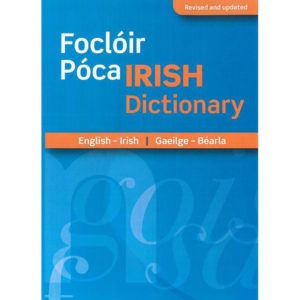Whoever does not plant in the spring does not reap in the fall.
Note: This proverb probably came to the Irish language from St. Paul. St. Paul visited the Galatian community about 48 A.D. Galatia was an ancient Celtic community. They lived in the north of what is presently Turkey, in and around the city of Ankara. Galatians would have spoken a Continental Celtic language similar to Insular Celtic. Irish evolved from Insular Celtic. Paul wrote in his letter to the Galatians, “Mar a chuireann duine an síol is ea a bhainfidh sé an fómhar.” (A man will reap only what he sows.) Litir Naomh Pól chuig na Galataigh 6:7
You will hear a dialectical variation in grammar from the native speaker of this seanfhocal. As is our custom, we have written the seanfhocal in the official standard (caighdeán oifigiúil) form. However, the offical form is “san fhómhair” while the speaker says “sa bhfómhair.” Most dialects lenite the word after ‘sa,’ unless it it begins with a d, t, or s. (Dentals resist lenition ach sin scéal eile.)
However some speakers will eclipse the word after ‘sa’ in certain set phrases. Perhaps, this is a carry over for the preposition ‘i.”Sa’ is the combination of the preposition ‘i’ and the definite article ‘an.’ In Old Irish, the compound word was ‘insan.’ In Modern Irish, only the ‘sa’ survived. The preposition ‘i’ causes the noun that follows it to be eclipsed, e.g., ‘i dtús.’
